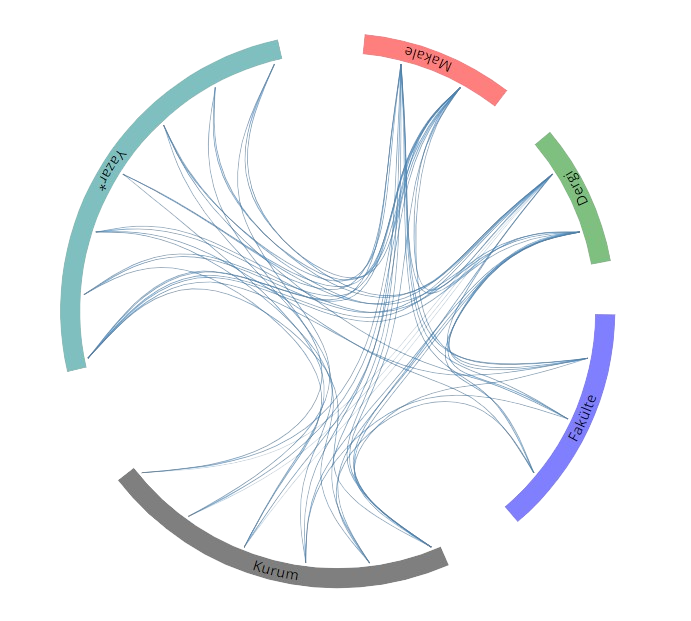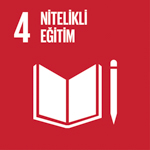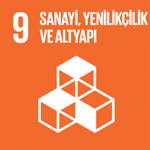Dr. Fayçal Saffih (د. فيصل صفيح) (IEEE Member since 2000) received the B.Sc. (with Best Honors) degree in Physics from the University of Sétif-1, Sétif, Algeria, in 1996, the M.Sc. degree in Physics (https://bit.ly/MasterThesis_FaycalSaffih) from the University of Malaya, Kuala Lumpur, Malaysia, in 1998, and the Ph.D. degree in Electrical and Computer Engineering (https://bit.ly/FayalS_PhDThesis) from the University of Waterloo, Waterloo, ON, Canada, in 2005.
Dr. Faycal Saffih has broad experience in Physics, Electrical & Electronics Engineering with an emphasis on Artificial Intelligence (AI) Hardware Implementation in heuristic Artificial Nets (https://bit.ly/Downloading_MasterThesis_FaycalS), in Nano/Microelectronics; at the device, circuits, and systems levels in CMOS imaging designs (http://bit.ly/FayalS_PhDThesis) to the integrative technology of the IoT. Furthermore, he took his AI implementation philosophy into STEM teaching and education ("Artificially Intelligent Method (AIM) for STEM-based Electrical Engineering Education and Pedagogy: Microelectronics”: https://bit.ly/AIM4STEM_ASEE2017_Talk_FaycalS [paper seminar] and https://bit.ly/AIM4STEM_ASEE2017P_FaycalS [published paper]. It is worth mentioning that Dr. Faycal Saffih has been a member of the American Society for Engineering Education (ASEE) since 2016. In addition, over the last 20 years, he taught Analog and digital microelectronics, computer vision, and CMOS imaging to name a few, at many Canadian and International Universities at both graduate and undergraduate levels. Dr. Faycal Saffih has developed a unique AI-based Teaching Philosophy (https://bit.ly/FaycalS_Teaching-Phil) and used Learning Management Systems (LMS) extensively to engage his students and research assistants (https://bit.ly/LMS-Teaching_FaycalS). You may watch in a relaxing mode and watch my students' evaluation of my newly AI-based teaching method that I developed at UAE University for Smart Learning/Teaching https://bit.ly/FaycalS_SMARTeach_StudentEvaluation_Dec2016 and you may download my published paper the 2017's International Conference of American Society for Engineering Education, which I am also a member of, from this link: https://bit.ly/AIM4STEM_ASEE2017P_FaycalS and watch its presentation presented in the conference in Columbus, OH, USA, here: https://bit.ly/AIM4STEM_ASEE2017T_FaycalS.
Dr. Faycal Saffih is a bilingual Canadian/Algerian citizen with a multidisciplinary academic and industrial career that took him from Malaysia in far southeast Asia to the West coast of the USA.
His contributions to Artificially Intelligent Design Engineering (AIDE) span the last 25 years since his master’s research on digital implementation of Artificial Intelligence (AI) through Neural Networks, in Malaysia in 1999. After this phase, he endeavored into biomimicry of Physical/Biological Intelligence (BI) during his doctoral research at the University of Waterloo, Canada, where he focused on circuits and system-level design of Smart CMOS Imaging. This research involved microelectronics design from concept to circuit design passing by post-layout simulation and to tape-out based on 180nm CMOS Technology and finally optoelectronic characterization properties, all single-handedly.
After an industrial experience as a Senior CMOS Imager Analog Designer (https://bit.ly/FaycalS_VOXTEL) at Voxtel-Inc, OR, USA, for more than 2 years, he endeavored on Intelligent Imaging at the semiconductor device level yielding his first patent on Nano-Photo-Rods (https://bit.ly/Patent1-2011_FaycalS) in 2011 during his research fellowship at KAUST University, KSA. Since then, he has been running a very successful International research collaboration (https://bit.ly/FaycalS_QNC-NanoFAB-CollaborKickOff) with the University of Waterloo’s Quantum Nano-Center (https://bit.ly/QNC-UW).
The second and final industrial route of Dr. Faycal Saffih took him back to Waterloo, ON, Canada, where he joined the Space and Defense Imaging department of Teledyne-Dalsa, a leading multinational imaging company, in 2018 as a Senior Design Specialist (https://bit.ly/Ref-Letter_HR-TDY_Dalsa).
Since 2018 (https://bit.ly/PhDStudents_UoT_FaycalS), Dr. Faycal Saffih’s research has taken a new direction in embedding intelligence into IoT systems for Intelligent biomedical applications such as the Intelligent Pancreas (IP) he published in the distinguished Journal of Physical and Engineering Sciences in Medicine (https://bit.ly/FaycalS_IntelligentPancreas), a Q1-classified international journal! This paper used AI to extract/infer blood glucose levels from ECG biosignals before feeding it back wirelessly into a micropump to inject an adequate amount of insulin if needed.
After a 3-year transit in his country of birth Algeria, where he undertook the above-mentioned research from the University of Tlemcen while being a senior researcher at the Center for the Development of Advanced Technologies, CDTA: www.cdta.dz, Dr. Faycal Saffih decided to endeavor to his final 🤔 destination to his beloved Istanbul, Turkiye, where joined the Electrical and Electronic Department of Istanbul Gelsim University.
You may check all of Dr. Faycal Saffih's worldwide talks and seminars at this interactive map: https://bit.ly/Seminars_Map_FaycalS, or if interested in MicroElectronics, you may watch his course's classes at: https://bit.ly/Microelectronics_Spring2017_FaycalS and its Lab at: https://bit.ly/Electronics_Lab_Spring2017_FaycalS all of which inspired by his own teaching/education philosophy: https://bit.ly/Teaching_Philosophy_FaycalS.
- E-posta
- fsaffih@gelisim.edu.tr
- Web Sayfası
- https://avesis.gelisim.edu.tr/fsaffih





